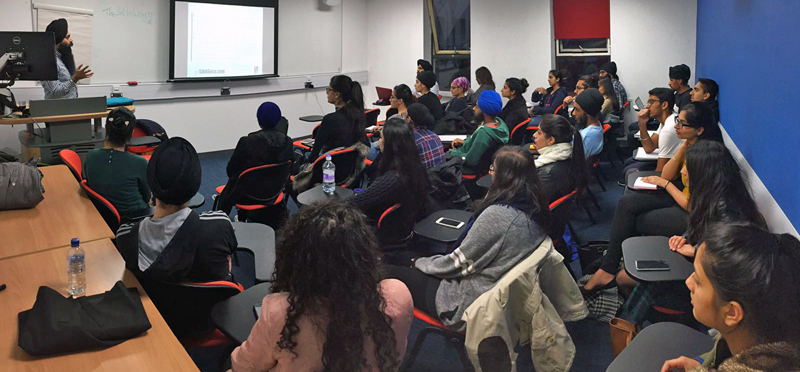A terrorist group nicknamed Boko Haram have released a video claiming that they are responsible for kidnapping more than 230 schoolgirls in Nigeria over three weeks ago. There has been little progress in the search since the kidnapping took place on 14 April at a boarding school in the North-East of the country and the Nigerian Government has come in for criticism by citizens who think that enough hasn’t been done, or done well enough to rescue the schoolgirls or even to learn of their possible whereabouts. What should also worry us is that a crime of this magnitude has taken place and yet has garnered insignificant numbers of print reports or moments of coverage by the international news media.
In the last 24 hours, the AFP News Agency published a video of Boko Haram leader Abubakar Shekau declaring that the group had kidnapped the girls to remove them from western schooling and “to sell them in the marketplace“. Jama’atu Ahlis Sunna Lidda’awati Wal-Jihad – to use their full name – want to see the creation of an Islamic State in Nigeria, relinquishing ties with the West and denouncing what it terms as ‘man-made laws’. For over a decade now they have waged war against the Nigerian authorities, escalating violence in recent years to target Christians in addition to politicians, the armed forces and the police. Today it has also been reported that a further 8 schoolgirls have been kidnapped over the weekend, suggesting that the situation is only getting worse.
The search for the schoolgirls is currently only being tackled by the Nigerian authorities, although the US has voiced it’s disgust at the crime and made it clear that it will share whatever resources are requested of it. There have been suggestions that the kidnappers might be holding out for a ransom demand to be met, although the video contradicts such a possibility. In the video Shekau makes the claim that the schoolgirls did not belong in schooling of any sort (not just Western schools) and instead should be residing in their households, an act that he is putting to right by marrying them off at a price. He explains his right to do so as acting on behalf of God whose property the schoolgirls are.
It is difficult to understand how human beings like Shekau have reached this point; a deep-seated hatred of authority stemming from socio-economic and political circumstances go a little way to explaining how some terrorist outfits come into being, but what possibly gives rise to the belief that young, barely-teenage girls have no right to study thereby justifying their kidnap? Forcibly selling or marrying these schoolgirls are the actions of depraved and inhuman beings whose despicable notion that women exist only to procreate and serve should be challenged at every level. This kidnapping is the extreme end of a spectrum that traverses the entire globe and from which no one people are exempt. Every single day there are schoolgirls and women who are forced to remove themselves from education, society and the freedom to lead a life of their own choosing and until we speak out as one in defiance of such a tyrannical mindstate, change will not come about.
Global news coverage of the kidnappings has been sparse and some commentators have attributed this to the colour of the schoolgirls’ skin, their nationality or the setting of Africa. Whilst a quarter of the World’s kidnappings take place in Nigeria, few incidents can rival the sheer scale of this crime and so it has been surprising to witness the lack of coverage in particular by mainstream news outlets considering the end-to-end attention they heap on less important events. Social media has once again picked up the slack with Twitter users ensuring that the story does not simply go away, but shouldn’t we be worried that even now in 2014, a few hundred children can go from the safety and comfort of their classrooms into a living nightmare overnight, ‘sold’ off to vile paedophiles and human traffickers – and the World hasn’t stopped to ask why, or more importantly what attempts are being made for their rescue? It’s difficult to say what we can do as ordinary citizens of the World beyond asking these questions of the authorities involved, but perhaps our general inactivity in that regard is being reflected by our news media? And perhaps in turn by the Nigerian authorities?





